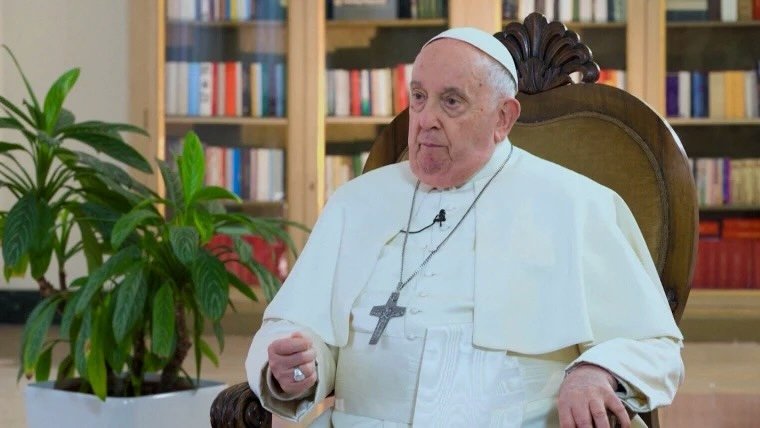Pope Francis at Eleven
The Catholic Thing, 16 March 2024
It is impossible to imagine that eleven years into John Paul’s pontificate anyone would seriously think it time to begin again to figure out the pontificate.
To an unusual degree – at least in English – the public presentation of the current pontificate, which marked its eleventh anniversary this week, has been entrusted to various commentators.
The Roman Curia under Pope Francis lacks John Paul-era figures like Cardinals Joseph Ratzinger, Benardin Gantin, Camillo Ruini, Francis Arinze, and Eduardo Pironio (already beatified), who had the stature and following to offer authoritative interpretations.
Under Pope Francis, putatively authoritative interpretations – again, in English – are outsourced to independent figures like Austen Ivereigh (UK), Michael Sean Winters (USA), Massimo Faggioli (Italy), and (in all languages) Fr. Antonio Spadaro. In recent months though, a certain frustration appears to have set in, brought vividly to a head by the Holy Father’s recent comments about Ukraine raising the “white flag” of negotiation, which caused deep dismay among Ukrainian Catholics.
I offer as an example my preferred source for Francis-friendly hermeneutics: Where Peter Is (WPI) a site run by Mike Lewis. He founded it in 2018 to offer “an apologetical approach” to Pope Francis in face of his critics. I consider him a good model of the dialogue that the Holy Father calls for.
“We’ve explained at great length the traditional Catholic understanding of papal primacy and authority,” Lewis writes. “We have repeatedly clarified what the Church teaches on the role of the living Magisterium. On many controversial questions, we’ve responded in great detail with the Church’s position on every debated aspect of an issue multiple times. Six years ago, we wanted to start a website that helped explain Pope Francis to our fellow Catholics who claimed to be ‘confused’ by him and his teachings. We’ve made the case for Pope Francis’s teachings throughout this time.”
WPI’s commentaries are serious, well-researched, and careful. For example, recent posts on concelebration and traditionalists, or the ontological non-superiority of priests were comprehensive, theologically competent, and fair. WPI has its point of view, but often shows respect to those it is criticizing. It is unabashedly in the Holy Father’s corner at all times, but that is not a bad thing to say about Catholics – and in the environment this pontificate has engendered it is understandable. Partisanship abounds.
For those who wish to keep abreast of the wackier things going on in the wild internet precincts of those truly deranged by Pope Francis, WPI has the patience and doggedness to report on it.
So it was noteworthy in December that, while defending Fiducia supplicans on blessings for irregular and same-sex couples, Lewis proposed a new year’s resolution “to begin again with Pope Francis.” He suggested that it’s time to go back and start over with Evangelii gaudium, which had a profound influence on Lewis.
“If this week in the Church has shown anything, it’s that many Catholics simply don’t get Pope Francis. Particularly in the US – although clear cracks have appeared in Germany, Africa, and Eastern Europe as well – there is a disconnect between the pope and many of the people, even after ten years,” Lewis writes. “It isn’t only affecting those who are openly rebellious or critical of him, either. I’ve seen many express that they think he’s well-intentioned, but sense that he is naive, out-of-touch, or is listening to bad advisors.”
After sending out hundreds of thousands of words over six years explaining the grandeur of the pontificate, Lewis is frustrated that somehow it is not getting through. So, it is time to start all over again, because surely a second time through will convince the recalcitrant.
The Holy Father’s responsible critics are not unaware of the beauty of Evangelii gaudium. They simply don’t see its evangelizing urgency reflected, for example, in the synodal process on synodality for a synodal Church.
Recall that in 2013 George Weigel wrote fulsomely in the Wall Street Journal that Evangelii gaudium is “a clarion call for a decisive shift in the Catholic Church’s self-understanding. . .the great historical transition from institutional-maintenance Catholicism to the Church of the New Evangelization.”
This week Weigel returned to those pages with an excoriating assessment of the “white flag” approach of Pope Francis to international relations. The problem that frustrates Lewis and others is not that people are not paying enough attention, but rather too much. So Lewis concluded last month that ill will – and worse – must be the problem.
“The damage done by the people in the indietrist movement is real, but no individual can stop it,” wrote an exasperated Lewis. “The only way they’ll ever change is if they respond to the promptings of the Holy Spirit in their hearts. The painful truth is that we can’t dialogue with the devil. And much of the opposition to the teaching of Pope Francis is straight from the bowels of hell. . . .And I have finally discerned that it’s time for me to say, in the words of Fr. Jacques Hamel, ‘Go away, Satan.’”
Continue reading at the The Catholic Thing.
